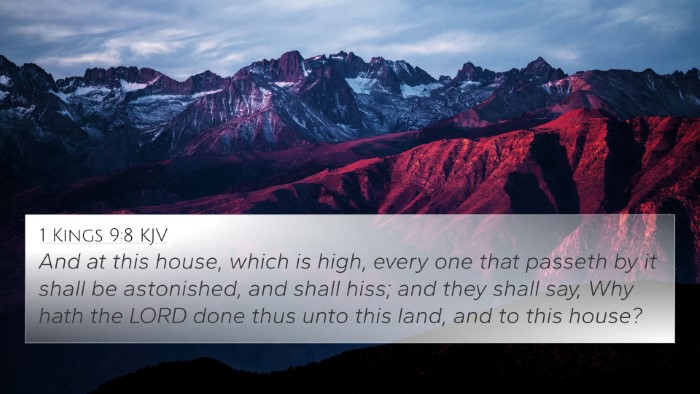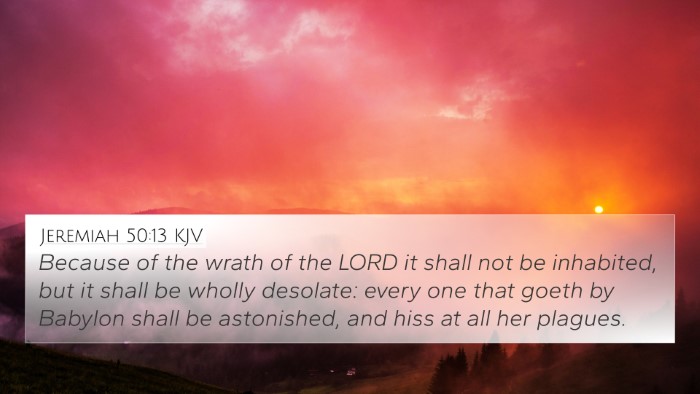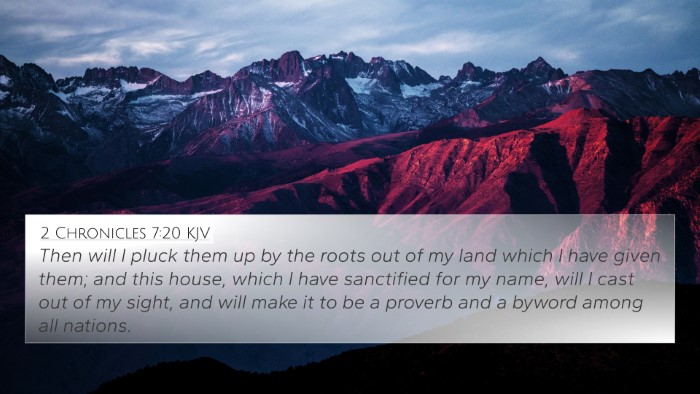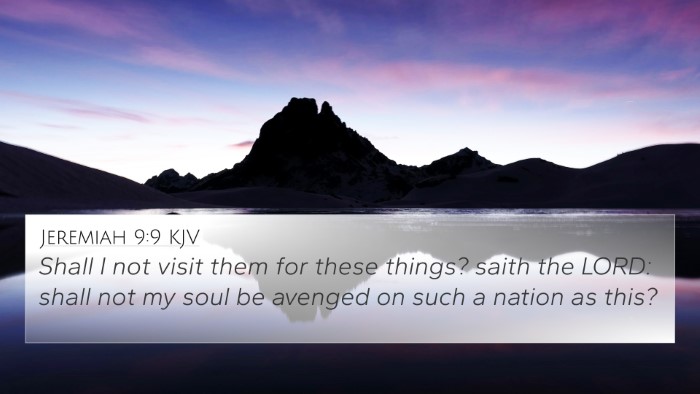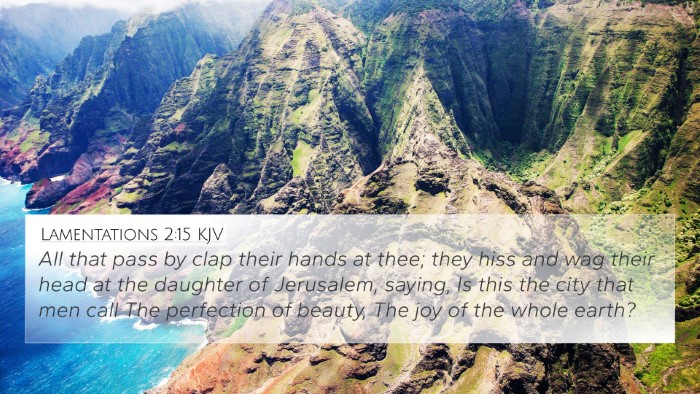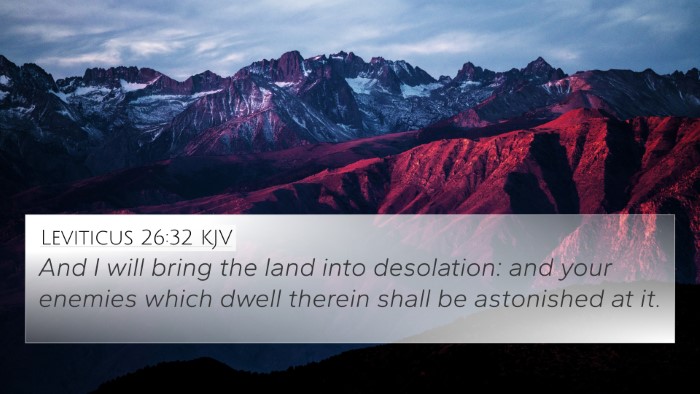Understanding Jeremiah 19:8
Jeremiah 19:8 states: "And I will make this city a desolation, and a hissing; every one that passeth thereby shall be astonished and hiss because of all the plagues thereof." This verse speaks to the impending judgment on Jerusalem, reflecting a somber prophecy of devastation and its far-reaching implications.
Summary of Key Themes
- Divine Judgment: A central theme in this verse is God's judgment upon a city that has turned away from Him. As seen through the lens of Matthew Henry, the prophetic utterance emphasizes the seriousness of sin and the corresponding consequences.
- Desolation and Hissing: The imagery of desolation suggests a complete abandonment, while the "hissing" serves as a warning and a call to reflection for those who pass by. Albert Barnes notes that this metaphor suggests the shame and reproach that would come from such destruction.
- Public Astonishment: Adam Clarke elaborates that onlookers would be astonished, embodying the greater context of Jerusalem's spiritual decline and the visible consequences of a nation that strays from its covenant with God.
Connections to Other Bible Verses
Jeremiah 19:8 can be cross-referenced with the following verses to deepen understanding:
- Jeremiah 7:34: "Then will I cause to cease from the cities of Judah, and from the streets of Jerusalem, the voice of mirth, and the voice of gladness, the voice of the bridegroom, and the voice of the bride." This verse reinforces the theme of loss and desolation in Jerusalem.
- Jeremiah 25:11: "And this whole land shall be a desolation, and an astonishment; and these nations shall serve the king of Babylon seventy years." A parallel verse that reflects God's judgment through the Babylonian exile.
- Lamentations 1:1: "How doth the city sit solitary, that was full of people!" This verse connects through lamenting the fate of Jerusalem, echoing the grief and destruction depicted in Jeremiah 19:8.
- Ezekiel 5:12: "A third part of thee shall die with the pestilence, and with famine shall they be consumed in the midst of thee." This verse shows the extended consequences of God's judgment on the people.
- Micah 1:6: "Therefore I will make Samaria as an heap of the field, and as plantings of a vineyard: and I will pour down the stones thereof into the valley, and I will uncover the foundations thereof." This illustrates the desolation brought by divine judgment.
- Isaiah 51:19: "These two things are come unto thee; who shall be sorry for thee? Desolation, and destruction, and the famine, and the sword: by whom shall I comfort thee?" An affirmation of desolation and the lack of solace for a nation under judgment.
- Revelation 18:2: "And he cried mightily with a strong voice, saying, Babylon the great is fallen, is fallen, and is become the habitation of devils, and the hold of every foul spirit." A New Testament parallel reflecting themes of judgment and desolation on a grander scale.
Thematic Connections
In examining Jeremiah 19:8, connections arise to the greater Biblical narrative concerning sin, judgment, and repentance:
- Sin and Consequence: The theme of reaping what one sows is crucial here, evident from Galatians 6:7.
- God's Patience: Scriptures like 2 Peter 3:9 illustrate God's patience, contrasting with the impending wrath portrayed in Jeremiah.
- A Call to Repentance: Many verses throughout the Old Testament, including Joel 2:12, provide opportunities for turning back to God before judgment ensues.
Reflection and Application
As one reflects on Jeremiah 19:8, it is essential to consider the implications for both personal and corporate faith. The warnings given are just as relevant today, urging individuals and communities to evaluate their alignment with divine principles. Themes of judgment prompt introspection about communal and individual relationships with God and the prophetic warnings heard through the Scriptures.
Conclusion
Understanding Jeremiah 19:8 requires acknowledging its place within the larger narrative of Scripture. The combination of natural consequences of turning from God, public astonishment, and prophetic warning calls for a serious reflection on obedience and the state of one's faith. Cross-references provide rich ground for comparative Bible verse analysis, thereby enhancing our grasp of God's unchanging nature in both judgment and mercy.




